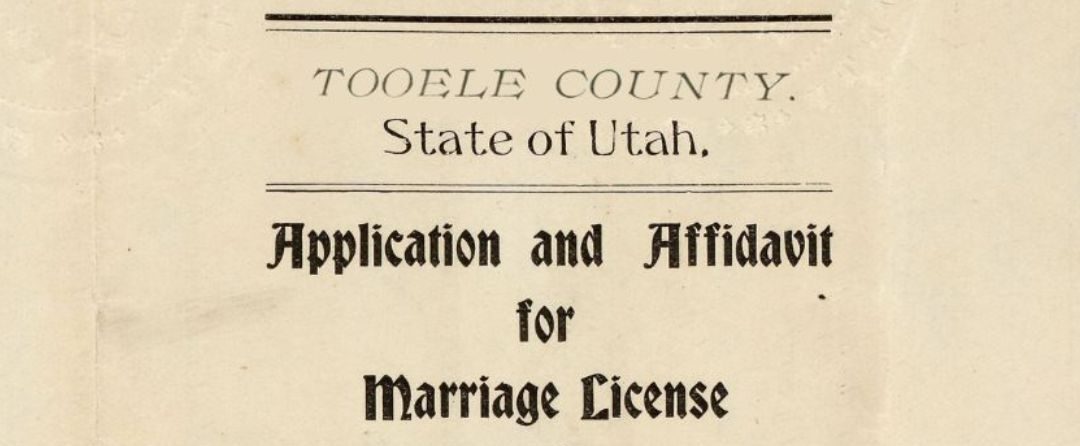Division of Archives and Records Service

Will the SRC approve your retention schedule?
Ever wonder if the Utah State Records Committee (SRC) will approve a retention schedule for your record series? Here are some ideas on the types of update requests that tend to be successful, and those that don’t.
Reasons the SRC would (most likely) approve a retention change
- Legal Need
A law or administrative rule (federal, state, or local) mandates that the record be kept a certain period of time. - Audit Recommendation
An audit from a legitimate authority (such as the Utah Office of the State Auditor, a federal agency, or a private auditing firm) recommends keeping the record a specific length of time. - Audit Cycle
The records are subject to a regular repeating audit. For example, if a particular record is audited every 7 years, that record will need to be kept at least 7 years. - Historical Significance
The record holds historical significance not reflected in the law and/or General Retention Schedule (GRS). “Historical significance” may include records which document the activities of an organization or agency; records that are useful for research due to their information about persons, places, subjects, or events of interest; and records which have intrinsic value, or inherent worth, based on factors of age, content, circumstances of creation, or other unique features (from “1.1 Definitions” in Records Management Essentials for Government Employees by the Utah Division of Archives and Records Service). - No General Schedule to Follow
There is no General Retention Schedule which fits your records.
Reasons that will require additional justification
- “We keep all our records this long.”
If all your records relate to the same function, are managed together as a unit, and would be incomprehensible/unusable if not kept together, this reason may hold a little weight. In general, however, applying a blanket retention to all your records will not be approved by the State Records Committee. - “We’ve always kept them this long.”
Unless there’s a compelling business need to keep records however long you’re keeping them, records should follow the General Retention Schedules. - Industry Standard
If your retention schedule is a documented industry standard, it will get approved. If it’s an assumed industry standard, you may need additional arguments before it’ll be approved. - Lawyer Recommendation – Your lawyer recommends keeping the records longer.
Unless there’s a compelling legal necessity for keeping the records longer, this argument will not work. Please note that litigation holds do not count as a retention change and do not need to be approved by the State Records Committee.
These reasons definitely will not fly
- Database – The records are in a database.
Many records fall into this category. Each agency has the responsibility to manage its records, regardless of record format. - Technology – The technology or format of the record allows for the record to be kept only a specific length of time.
Records need to be migrated to other media/formats, if necessary, to preserve them throughout the entire record retention schedule. - Office Space – The records take up too much space in your office.
A record is valuable because of how it is used (see Utah Code 63G-2-103(26)), not because of how it is stored. If you’d like to get some boxes out of your office, take a look at storing them at the State Records Center. A RIM (records and information management) specialist can help you get started sending boxes to this free, secure offsite-storage facility.
Other factors which influence the decision
- Amount of Change
How big is the retention change? If the retention is changing from 2 years to 3 years, there still needs to be a reason for the change, but it’s not a big deal. If the retention is changing from 3 years to 20 years, the SRC will have more questions. - Disposition Change
If the disposition is changing, such as permanent records changing to non-permanent or vice versa, the SRC will want to know why. - Precedent
Is there a precedent for the retention period? If you or your RIM specialist can find a precedent, that will help your position.
The State Archives is here to help you fulfill your records and information management responsibilities. If you have a retention schedule you’d like to update or get approved, please contact your RIM specialist for assistance.
Public Comment Policy
Recent Posts

May. 08, 2024
ARO Spotlight: Debbie Berry from the Division of Water Rights

May. 01, 2024
Utah History Day 2024: Archival Research Winners

Apr. 10, 2024
From Pews to Pixels: Weber State’s Stewart Library Digitizes New Zion Baptist Church’s Legacy

Apr. 04, 2024
New Finding Aids at the Archives: March 2024

Apr. 03, 2024
Sealing the Deal: Tooele County Clerk’s Office Unlocks the Vault with Historic Marriage Records
Authors
Categories
- Digital Archives/
- Electronic Records/
- Finding Aids/
- General Retention Schedules/
- GRAMA/
- Guidelines/
- History/
- Legislative Updates/
- News and Events/
- Open Government/
- Records Access/
- Records Management/
- Records Officer Spotlights/
- Research/
- Research Guides/
- State Records Committee/
- Training/
- Uncategorized/
- Utah State Historical Records Advisory Board/